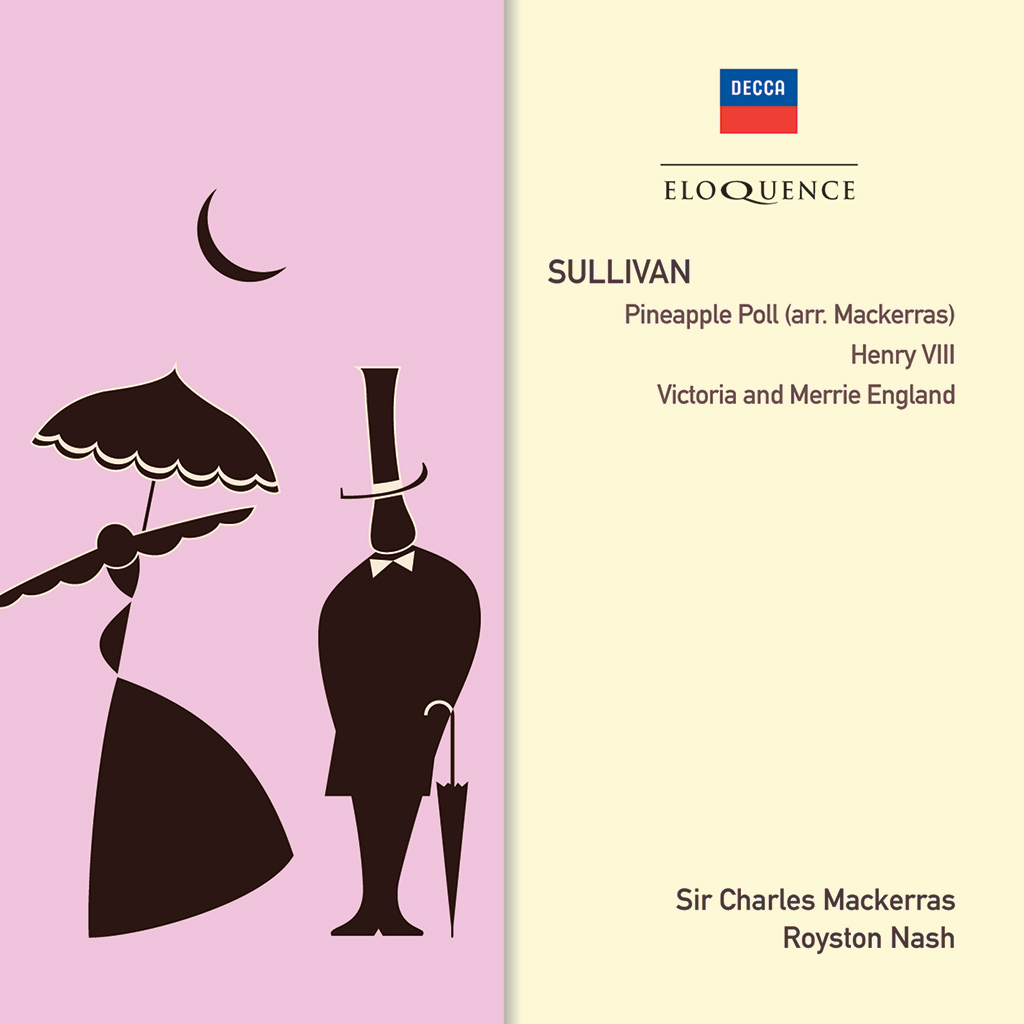
Among the legion of Decca recordings boasting the company’s fabled ‘Decca Sound’, one that has been overlooked is the late Sir Charles Mackerras’s recording of his own arrangements of ‘moments’ from the G&S canon under the title Pineapple Poll. Like Gaîte Parisienne and Le Beau Danube it is a ‘jukebox’ ballet, built on cleverly assembled medleys, and it received its first performance in 1951. The remainder of this CD allows listeners the opportunity to hear examples of original music composed by Sullivan, without Gilbert. The incidental music from Henry VIII is one of the many examples of incidental music that Sullivan wrote for Shakespeare plays, while Victoria and Merrie England represents the last of his ballet scores.
SIR ARTHUR SULLIVAN
Pineapple Poll (Arranged by Sir Charles Mackerras)
Philharmonia Orchestra
Sir Charles Mackerras
Henry VIII: Incidental Music
Victoria and Merrie England
Royal Philharmonic Orchestra
Royston Nash
Recording Producers: James Mallinson (Pineapple Poll); Ray Horricks (Henry VIII, Victoria and Merrie England)
Balance Engineers: Colin Moorfoot (Pineapple Poll); Martin Smith (Henry VIII); Martin Smith (Victoria and Merrie England)
Recording Locations: Decca Studios, West Hampstead, London, UK, June 1974 (Henry VIII), February 1978 (Victoria and Merrie England); Kingsway Hall, London, United Kingdom, November 1982 (Pineapple Poll)
‘its glowing ambience casts a pleasing bloom over the spirited and elegantly polished playing of the Philharmonia Orchestra. Mackerras conducts with great warmth’ (Pineapple Poll) Penguin Guide
‘Sir Charles Mackerras’s irresistibly outrageous orchestrations contribute a great deal to the delight. … I, who had not heard these creative arrangements for many years, found that they came up as fresh as the proverbial paint. Not only are the cheerful counterthemes much more complex than anything Sullivan ever imagined – notably some of those for the trombones – but the music is much more difficult to play, with the violins, I would think, taxed to the limit by some of the exuberant tempos; the Philharmonia Orchestra surmounts every problem.’ Gramophone
